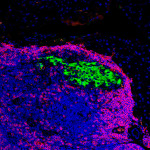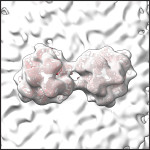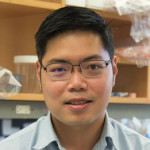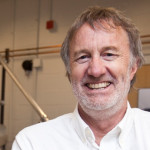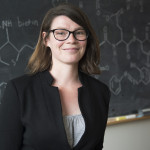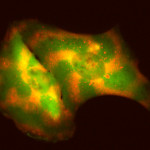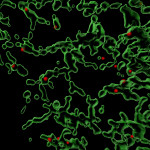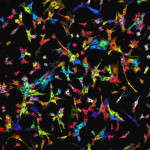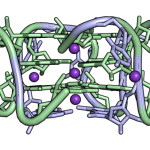Tag Biochemistry
UW professor emeritus who paved the way for at-home colon cancer testing and other screenings earns national recognition
Earlier this month, the Bayh-Dole Coalition awarded James Dahlberg the American Innovator Award, recognizing his commitment to advancing federally funded inventions from the laboratory to real-world applications.
Remembering Professor Emerit Ann Palmenberg, renowned leader in virology
Enthusiastic, jovial and persistent, Palmenberg rarely did anything halfway, at work or at home. She made it her mission to find ways to connect with everyone she met — and if that meant an opportunity to share the coolest thing she did in the lab that week, all the better.
New tool makes quick health, environmental monitoring possible
Vatsan Raman, who has received a provisional patent for this work, sees broad applications for the technology his lab developed, including field tests that identify pollutants in local water sources in minutes and at-home tests that track health indicators.
Monica Neugebauer awarded 2024 Packard Fellowship
Neugebauer, who joined UW–Madison’s Biochemistry Department in 2023, discovers and engineers novel enzymes with functions beyond what is commonly found in nature.
New images of RSV may expose stubborn virus’s weak points
Using an imaging technique called cryo-electron tomography, A UW–Madison research lab has now revealed details of molecules and structures essential to RSV’s form and function.
UW biochemist Ci Ji Lim named Pew Scholar
Lim is the ninth UW–Madison researcher selected to be a Pew biomedical scholar and is one of 22 early-career scientists to receive the honor in 2024. His research focuses on telomeres, the protective at the ends of chromosomes
UW–Madison biochemist wins prestigious forestry prize for discoveries that support sustainable energy and product innovations
UW–Madison biochemistry professor John Ralph has been awarded the forestry industry's top prize, alongside collaborator Wout Boerjan, a professor at Ghent University in Belgium, for their groundbreaking research on the molecular structure of lignin, one of the main components of plant cell walls.
Researchers reveal evolutionary path of important proteins
New research from the University of Wisconsin–Madison decodes the evolutionary pathway of regulatory proteins, the molecules that help control gene expression.
New toolkit helps scientists study natural cell death
Taking advantage of the unique biochemical properties of protein fragments, their tool uses less expensive, more efficient, off-the-shelf chemical compounds to help identify sites where proteins were cut.
Programming cells to organize their molecules may open the door to new treatments
Biochemists at UW–Madison have developed a tool to control how certain proteins move in mammalian cells, a discovery that has multiple potential uses for treating or studying diseases by engineering specific cellular activities or studying cellular activity in a living organism.
Land and campus community connect through new art installation
A new art installation preserves some of the wood from an elm tree fondly known as Elmer, which stood in the Biochemical Sciences Complex Plaza until it succumbed to Dutch elm disease in 2018. The hanging piece was installed in the Biochemistry Sciences Building atrium in October 2023.
UW–Madison scientists reveal the inner workings of an essential protein trafficking complex
The discovery could eventually help researchers better understand and develop new treatments for diseases like cancer, diabetes and those that cause immune dysfunction.
Breaking through the noise of cellular signaling
Many cancers are the result of corrupted signaling pathways, and a more nuanced understanding of those pathway disruptions may be a key step in developing targeted treatments.
Folds in pUG molecules turn off genes and could provide clues about human disease
A curlicue RNA molecule dubbed a pUG can silence gene expression in roundworms, according to new findings. Researchers are using what they've learned to study human pUGs and their role in our own gene expression.
Enzyme, proteins work together to tidy up tail ends of DNA in dividing cells
The research provides insight into how a human cell preserves the integrity of its DNA through repeated cell division.

